Han-Chung Wu's Lab
-
- SpecialtyCancer Research, Cell Biology
- E-mailhcw0928@gate.sinica.edu.tw
- Tel02-2789-9528
- LabR411/ICOB
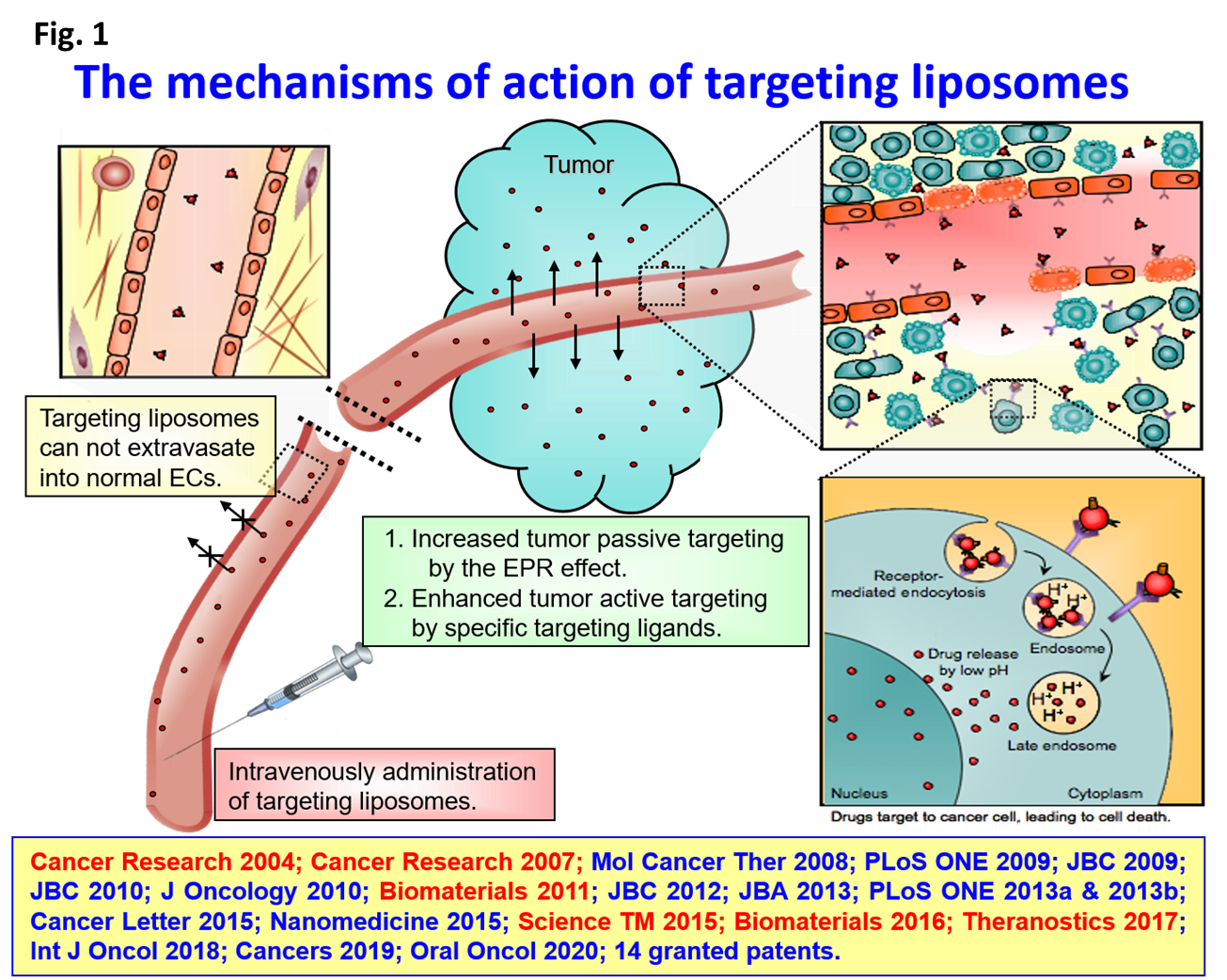
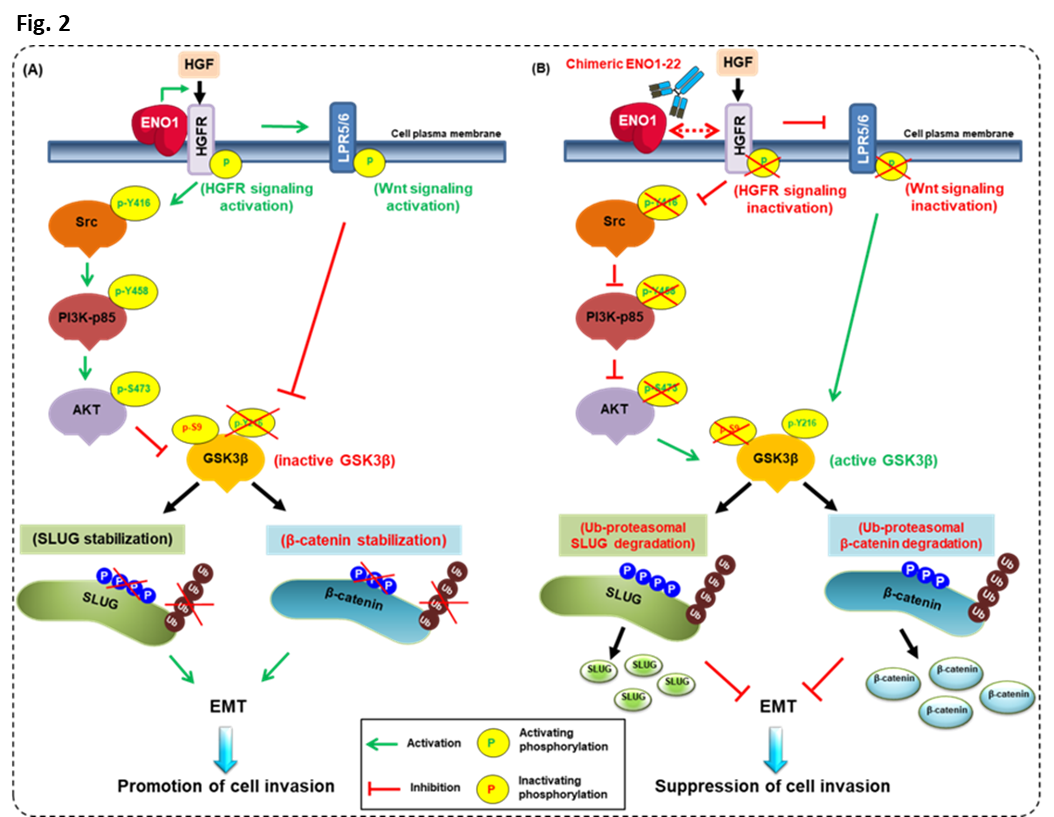
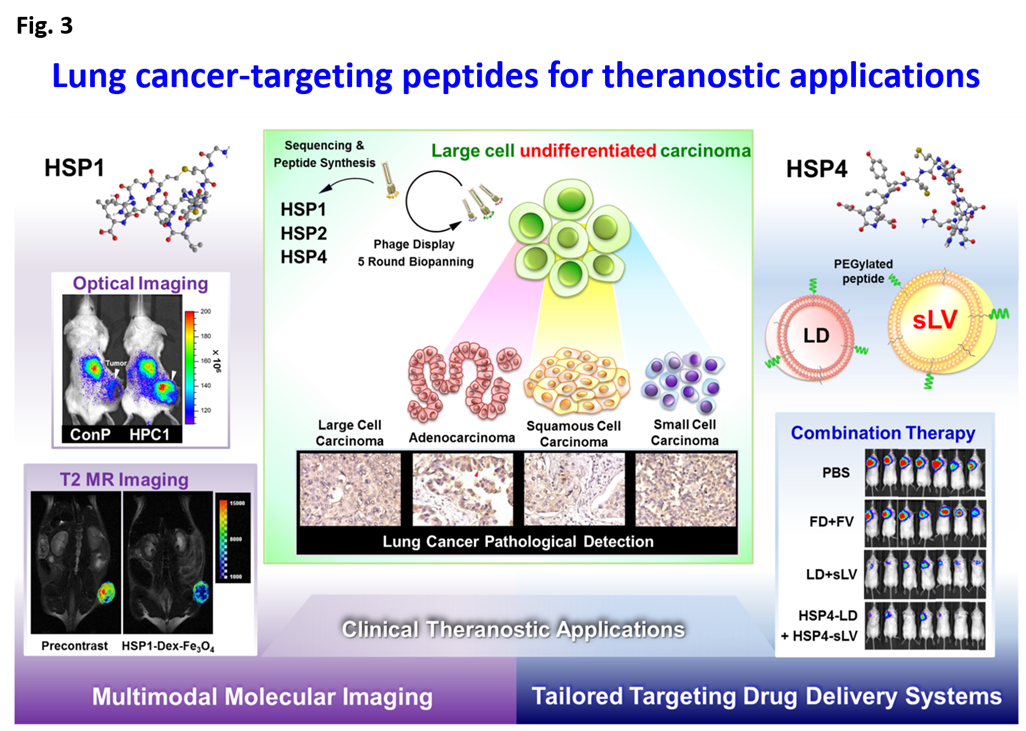
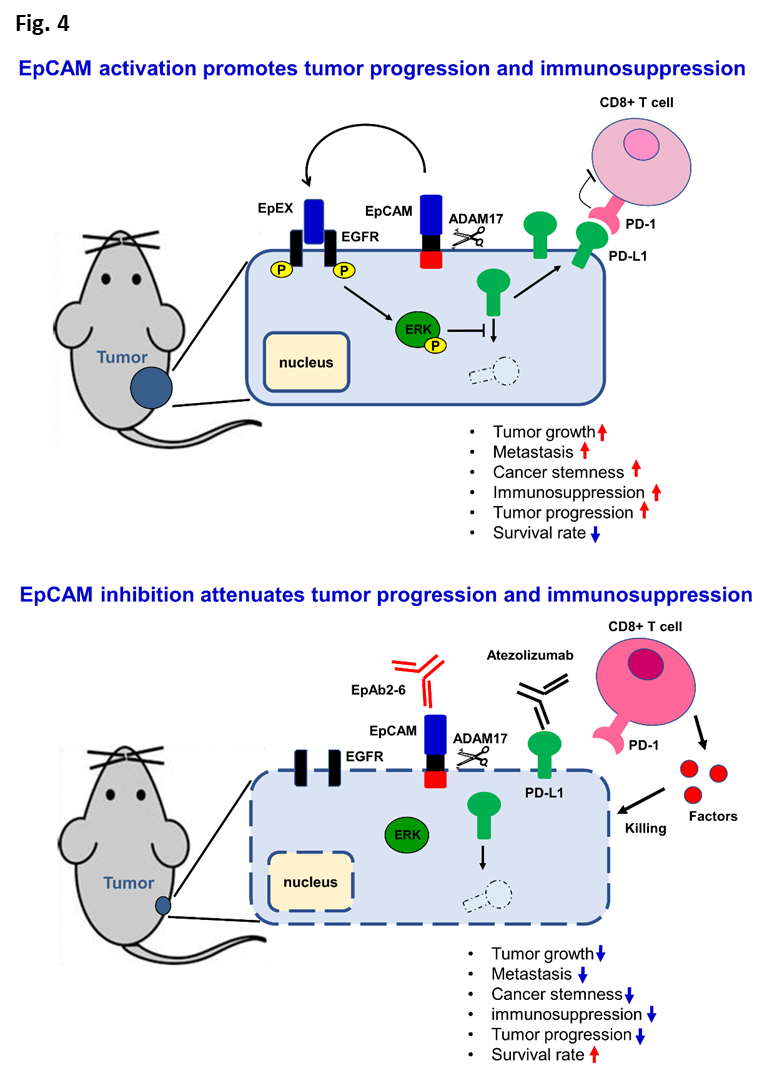
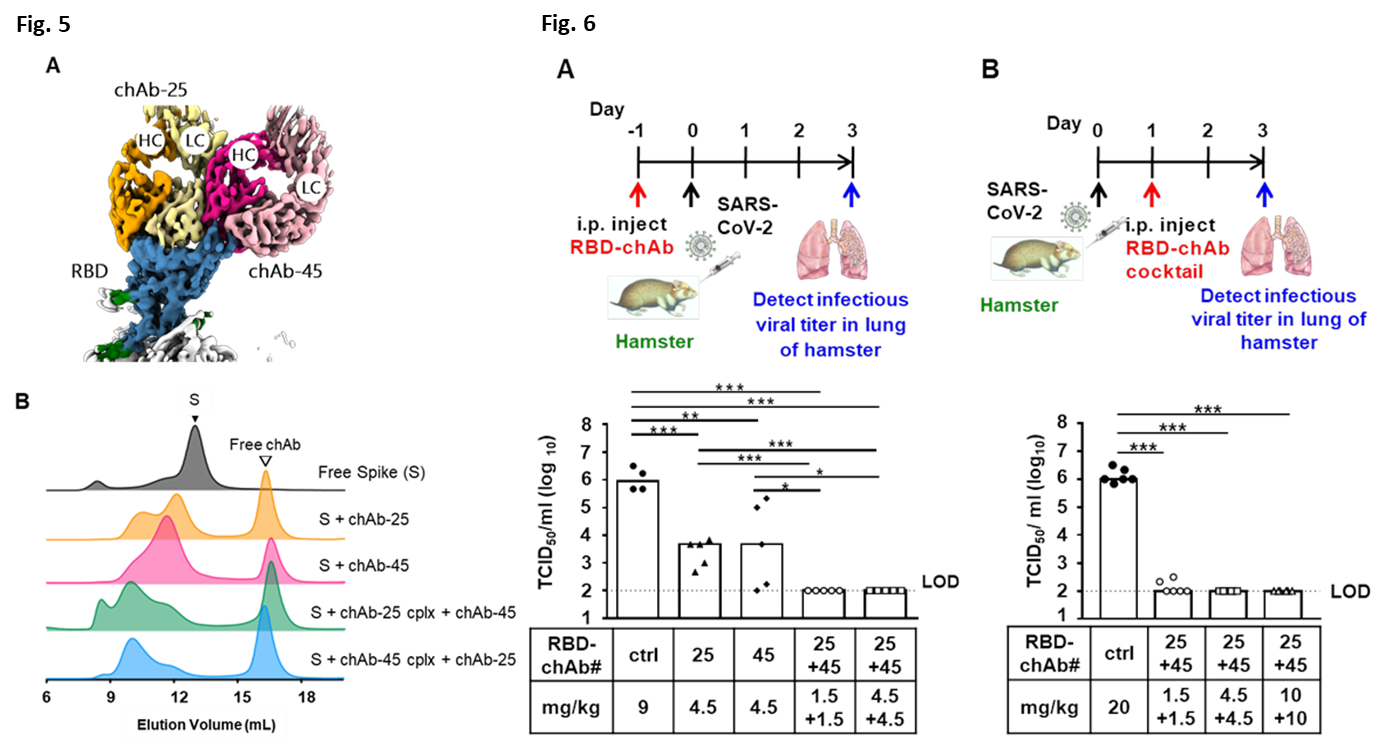
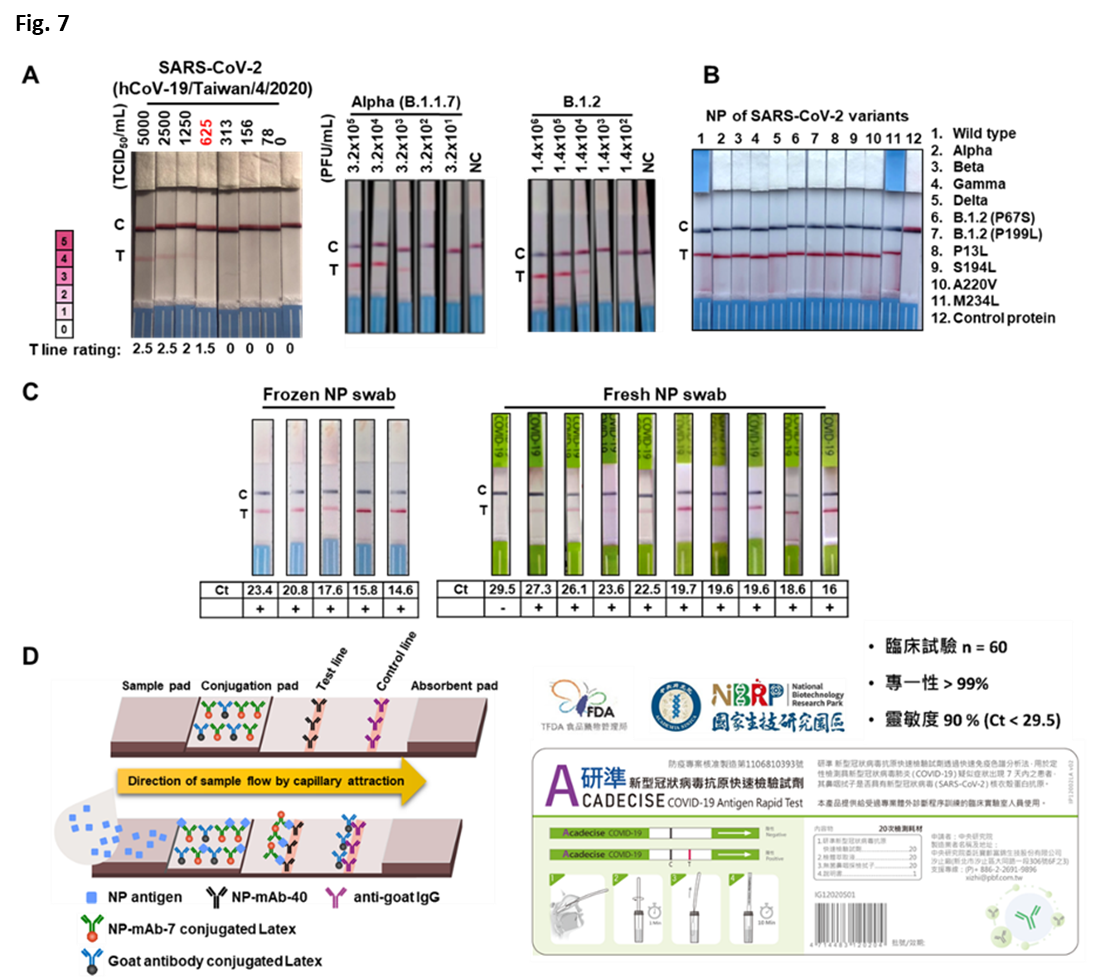
1. Development of Novel Drug Delivery Systems for Cancer Molecular Imaging and Therapy
Cancer is one of the most common causes of mortality, accounting for more than 8 million annual deaths worldwide. Advances of medical science in the treatment of cancer have reached a bottleneck due to several major obstacles, including drug resistance, poor drug penetration through the high interstitial fluid pressure (IFP) of solid tumors, and the resilience of cancer stem cells. To overcome these obstacles, our lab is developing ligand-mediated targeted therapies for cancer (Fig. 1). This strategy can improve the therapeutic efficacies of cancer treatments by increasing drug accumulation in the tumor tissue and reducing drug side effects by limiting drug distribution and damage to normal tissues. Since targeted delivery of small molecules to tumors can be useful to improve both cancer diagnosis and therapy, development of novel tumor-specific ligands or pharmaceutical nanocarriers is highly desirable. In particular, peptide-mediated targeting holds great promise for incorporation into novel cancer therapies, as it has been shown to increase tumor specificity and limit toxicity. Our research on this topic has been published in Cancer Letters 2015, Nanomedicine 2015, Science Translational Medicine 2015, Biomaterials 2016, Theranostics 2017, Oral Oncology 2020 and Cancer Research 2021.
Colorectal cancer is one of the most commonly diagnosed cancers. We have successfully identified a novel targeting peptide that specifically binds to colorectal cancer cells, pHCT74. Research results on this peptide have been published in top translational medical journals. We further found that the molecular target of pHCT74 peptide is α-enolase (ENO1). This led us to discover that ENO1 binds to HGFR, which promotes lung cell invasion, tumor metastasis and progression through the HGFR-Src-PI3K-AKT-GSK3β-SLUG and HGFR-WNT-GSK3β-SLUG signaling axes. We then generated a novel monoclonal antibody (mAb) against ENO1, called chimeric ENO1-22 (chENO1-22), which can bind to ENO1 on the surface of lung cancer cells. Treatment with chENO1-22 reduced lung cancer cell growth and invasion, and importantly, chENO1-22 blocked metastasis and improved survival in mouse models (Fig. 2). This study showed that ENO1 promotes lung cancer metastasis via HGFR and WNT signaling, and it further introduced a novel anti-ENO1 antibody for potential therapeutic use in lung cancer (Cancer Research 2021).
Lung cancer is the leading cause of cancer-related death worldwide. Three targeting phages (HPC1, HPC2, and HPC4) and their respective displayed peptides (HSP1, HSP2, and HSP4) were able to bind to both small cell lung cancer (SCLC) and non-small cell lung cancer (NSCLC) cell lines, as well as clinical specimens; however the peptides did not bind normal pneumonic tissues. Liposomal doxorubicin (LD) conjugated to HSP1, HSP2, or HSP4 had significantly greater therapeutic efficacy than non-targeting liposomal drugs in NSCLC xenograft (H460 and H1993) animal models (Fig. 3). In vivo optical imaging of phage homing and magnetic resonance imaging (MRI) of peptide-SPIONs revealed that HSP1 was the most favorable probe for multimodal molecular imaging of lung cancer (Theranostics 2017).
2. EpCAM Signaling Promotes Tumor Progression through the EGFR Pathway
Although epithelial cell adhesion molecule (EpCAM) has previously been shown to promote tumor progression, the underlying mechanisms remain largely unknown. In this study, we report that the EGF-like domain I within the extracellular domain of EpCAM (EpEX) binds EGFR, activating both AKT and MAPK signaling to inhibit forkhead transcription factor O3a (FOXO3a) function and stabilize PD-L1 protein, respectively. Treatment with the EpCAM neutralizing antibody, EpAb2-6, inhibited AKT and FOXO3a phosphorylation, increased FOXO3a nuclear translocation, and upregulated high temperature requirement A2 (HtrA2) expression to promote apoptosis, while decreasing PD-L1 protein levels to enhance the cytotoxic activity of CD8+ T cells. In in vivo studies, EpAb2-6 markedly extended survival in metastasis and orthotopic mouse models of human colorectal cancer. The combination of EpAb2-6 with atezolizumab, an anti-PD-L1 antibody, almost completely eliminated tumors. Moreover, the number of CD8+ T cells in combination-treated tumors was increased compared with atezolizumab alone. Our findings suggest a new combination strategy for cancer immunotherapy in patients with EpCAM-expressing tumors (Fig. 4). The study showed that EpCAM acts through growth factor signaling to stabilize another cell-surface molecule, PD-L1, which allows tumor cells to escape recognition by the patient’s immune system. Most importantly, a new neutralizing antibody was able to prevent EpCAM signaling and decrease the level of PD-L1 in cancer cells, leading to cancer cell death through this and other mechanisms. These results have been published in Cancer Letters 2018 and Cancer Research 2020.
3. Development of antibodies for treatment and detection of SARS-CoV-2
SARS-CoV-2 rapidly spread to cause the severe worldwide COVID-19 pandemic after the initial outbreak at the end of 2019. One promising therapeutic strategy for COVID-19 is treatment with neutralizing antibodies, which can reduce the viral load to prevent disease progression and accelerate patient recovery. We have successfully created a series of generated therapeutic antibodies against SARS-CoV-2 RBD protein, of which six have high binding and excellent neutralizing activity toward SARS-CoV-2. Importantly, these six anti-RBD antibodies target three distinct non-overlapping epitopes within the RBD, and cryo-electron microscopy analyses of two highly potent antibodies in complex with the SARS-CoV-2 spike protein suggested they may be particularly useful when combined in a cocktail therapy (Fig. 5). The efficacy of this antibody cocktail was confirmed in SARS-CoV-2-infected mouse and hamster models as prophylactic and post-infection treatments (Fig. 6). With the emergence of more contagious variants of SARS-CoV-2, cocktail antibody therapies hold great promise for control of the disease and prevention of drug resistance (PLOS Pathogens 2021 JBMS 2021).
New sensitive, rapid diagnostic tests for the wide-spectrum detection of SARS-COV-2 variants are needed. To create such tests, we generated a panel of 41 monoclonal antibodies against the SARS-CoV-2 nucleocapsid protein (NP) using mouse hybridoma techniques. Of these mAbs, nine exhibited high binding activities and were applied in latex-based lateral flow immunoassays (LFIAs). The LFIAs utilizing NP-mAb-7 and -40 had the best sensitivity and lowest limit of detection: 8 pg for purified NP and 625 TCID50/mL for the authentic virus (hCoV-19/Taiwan/4/2020). Specificity tests further showed that the NP-mAb-40/7 LFIA strips did not cross-react with five human coronavirus strains or 20 other common respiratory pathogens. Importantly, we found that 10 NP mutants, including alpha, beta, gamma, and delta variants, could be detected by NP-mAb-40/7 LFIA strips. A clinical study (n = 60) of the NP-mAb-40/7 LFIA strips demonstrated a specificity of 100% and sensitivity of 90% in infected individuals with cycle threshold (Ct) values < 30 (IJMS 2021). Based on the data from this clinical study, the NP-mAb-40/7 LFIA was granted Emergency Use Authorization (EUA) by TFDA on July 8, 2021, making it the first test from Academia Sinica to gain approval for use in the population (brand name: Acadecise COVID-19 antigen rapid test) (Fig. 7).
Notably, detection of serum antibodies IgG/IgM can be used to estimate the time sequence of infection, which is helpful for epidemic prevention and investigations.We began a cooperation with Tzu-Chi University at the beginning of the outbreak to develop serology tests for the detection of IgM and IgG against SARS-CoV-2. The test was granted an EUA by TFDA on July 27, 2020. To date, 195,000 of these rapid serological antibody tests have been delivered to developing countries, such as Indonesia, Honduras, Bolivia, Dominican Republic, Saint Lucia, and Lesotho. The tests were distributed for the purpose of international humanitarian assistance and in the spirit of “Taiwan Is Helping”.
- 2008
- Academia Sinica Young Investigator Award (2008年中央研究院年輕學者研究著作獎)
- 2010
- Yung-Shing Young Investigator Award (2010年第五屆永信李天德醫藥科技獎)
- 2011-14
- NSC Outstanding Research Award, National Science Council, Taiwan (2011 國科會傑出研究獎)
- 2015-18
- MOST Outstanding Research Award, Ministry of Science and Technology, Taiwan (2015 科技部傑出研究獎)
- 2015-25
- Chair, Taiwan Bio-development Foundation Award (2015 台灣生技醫藥發展基金會TBF生技講座)
- 2015
- Ho Jen-Dui Distinguished Honor Award (侯金堆傑出榮譽獎)
- 2018-21
- Special Research Fellow Award, Ministry of Science and Technology, Taiwan (2018 科技部特約研究員獎)
- 2018
- International Inventor Prize and Lifetime Achievement Academic Award (2018第十四屆IIP國際傑出發明家終身成就獎)
- 2018
- The Executive Yuan Award for Outstanding Science and Honors Technology Contribution (2018行政院傑出科技貢獻
- 2019
- Award for Excellent Contributions in Technology Transfer, Ministry of Science and Technology, Taiwan (2019 科技部傑出技術移轉貢獻獎)
- 2020-23
- Special Research Fellow Award, Ministry of Science and Technology, Taiwan (科技部特約研究員獎)
- 2020
- The 17th National Innovation Award- Excelsior Award (2020第十七屆國家新創獎-新創精進獎)
- 2020
- National Academy of Inventors (NAI) Fellow (2020美國國家發明家學院院士)
- 2021
- Outstanding Research Award, Taiwan Nanomedicine Society (2021臺灣奈米生醫學會傑出研究獎)
- 2021
- The 18th National Innovation Award- Excelsior Award (2021 第十八屆國家新創獎-新創精進獎)
- 2021
- Award for Excellent Contributions in Technology Transfer, Ministry of Science and Technology, Taiwan (2021 科技部傑出技術移轉貢獻獎)
- 2021
- NCKU Distinguished Alumni Award (2021 國立成功大學校友傑出成就獎)
- 2021
- Award for Outstanding Contribution of Academic Research Achievements to the Development of Pharmaceutical Technology, National Health and National Society, Ming-Ning Wang Memorial Foundation (「第31屆王民寧獎」學術研究成果對醫藥科技發展、國民健康和國家社會傑出貢獻獎)
| Name | Job Title | Telephone | Remark | |
|---|---|---|---|---|
| Han-Chung Wu | Distinguished Research Fellow | 02-2789-9558 | hcw0928@gate.sinica.edu.tw |
- Lin, C. Y., Wang, Y. L., Chi, Y. H., Chan, L. Y., Ho, C. T., Chen, G. W., Hsu, H. C., Hwang, D. W., Wu, H. C.* and Hung, S. C.* (2022). Functionalized osteoarthritis targeting peptides for MRI, lubricant and regenerative medicine. Nature Biomedical Engineering (Accepted)
- Hwang, Y. C., Lu, R. M., Su, S. C., Chiang, P. Y., Ko, S. H., Ke, F. Y., Liang, K. H., Hsieh, T. Y. and Wu, H. C.* (2022). Monoclonal antibodies for COVID-19 therapy and SARS-CoV-2 detection. Journal of Biomedical Science 29, 1.
- Liang, K. H., Chiang, P. Y., Ko, S. H., Chou, Y. C., Lu, R. M., Lin, H. T., Chen, W. Y., Lin, Y. L., Tao, M. H., Jan, J. T. and Wu, H. C.* (2021). Antibody cocktail effective against variants of SARS-CoV-2. Journal of Biomedical Science. 28, 80.
- Lu, R. M., Ko, S. H., Chen, W. Y., Chang, U. L., Lin, H. T. and Wu, H. C.* (2021). Monoclonal Antibodies against Nucleocapsid Protein of SARS-CoV-2 Variants for Detection of COVID-19. International Journal of Molecular Sciences. 22, 12412.
- Su, S. C., Yang, T. J., Yu, P. Y., Liang, K. H., Chen, W. Y., Yang, C. W., Lin, H. T., Wang, M. J., Lu, R. M., Tso, H. C., Chung, M. J., Hsieh, T. Y., Chang, Y. L., Lin, S. C., Hsu, F. Y., Ke, F. Y., Wu, Y. H., Hwang, Y. C., Liu, I. J., Liang, J. J., Liao, C. C., Ko, Y. H., Sun, C. P., Wu, P. Y., Jan, J. T., Chang, Y. C., Lin, Y. L., Tao, M. H., Hsu, S. T., and Wu, H. C.* (2021). Structure-guided antibody cocktail for prevention and treatment of COVID-19. PLoS Pathogens. 17, e1009704.
- Wang, Y. P.*, Liu, I. J., Chen, K. C. Wu, H. C.* (2021). NOTCH1 signaling promotes protein stability of HER3 through the AKT pathway in Squamous Cell Carcinoma of Head and Neck. Oncogenesis 10, 59.
- Li, H. J., Ke, F. Y., Lin, C.C., Lu, M. Y., Kuo, Y. H., Wang, Y. P., Lin, S. C., Chang, Y. H., Chen, H. Y., Yang, P. C. and Wu, H. C.* (2021). ENO1 promotes lung cancer metastasis via HGFR and WNT signaling-driven epithelial-mesenchymal transition. Cancer Research 81, 4094-4109.
- Guo, J. Y., Liu, I. J., Lin, H. T., Wang, M. J., Chang, Y. L., Lin, S. C., Liao, M. Y., Hsu, W. C., Lin, Y. L., Liao, J. C. and Wu, H. C.* (2021). Identification of COVID-19 B-cell epitopes with phage-displayed peptide library. Journal of Biomedical Science. 28, 43.
- Chen, H. N., Liang, K. H., Lai, J. K., Lan, C. H., Liao, M. Y. Hung, S. H., Chuang, Y. T. and Wu, H. C.* (2020). EpCAM signaling promotes tumor progression and protein stability of PD-L1 through EGFR pathway. Cancer Research 80, 5035-5050.
- Ke, F. Y., Chen, W. Y., Lin, M. C., Hwang, Y. C., Kuo, K. T. and Wu, H. C.* (2020). Novel monoclonal antibody against integrin α3 shows therapeutic potential for ovarian cancer. Cancer Science 111, 3478-3492.
- Lu, R. M., Hwang, Y. C., Liu, I. J., Lee, C. C., Tsai, H. Z., Li, H. Z. and Wu, H. C.* (2020). Development of therapeutic antibodies for the treatment of diseases. Development of therapeutic antibodies for the treatment of diseases. Journal of Biomedical Science 27, 1.
- Wang, Y. P., Liu, I. J., Chung, M. J. and Wu, H. C.* (2020). Novel anti-EGFR scFv human antibody-conjugated immunoliposomes enhance chemotherapeutic efficacy in squamous cell carcinoma of head and neck. Oral Oncology 106, 104689.
- Lu, R. M., Wu, C. H., Patil, A. V., and Wu, H. C.* (2020). Peptide Targeting Methods. Book title “Handbook of in vivo chemistry in mice”, in Chapter 16, published by WILEY.
- 1Lu, R. M., Chiu, C. Y., Liu, I. J., Chang, Y. L., Liu, Y. J. and Wu, H. C.* (2019). Novel human antibody against VEGFR2 shows therapeutic potential for leukemia and prostate cancer. Cancer Science 110, 3773-3787.
- Kuan, I. I., Chen, C. H., Lu, J. and Wu, H. C.* (2019). The extracellular domain of epithelial cell adhesion molecule (EpCAM) enhances multipotency of mesenchymal stem cells through EGFR-LIN28-LET7 signaling. Journal of Biological Chemistry 294, 7769-7786.
- Huang, J. R., Lee, M. H., Li, W. S. and Wu, H. C.* (2019). Development of liposomal irinotecan for treatment of colorectal cancer in a preclinical model. Cancers 11, 281.
- Liang, K. H., Tso, H. C., Hung, S. H., Kuan, I. I., Lai, J. K., Ke, F. Y., Chuang, Y. T., Liu, I. J., Wang, Y. P., Chen, R. H. and Wu, H. C.* (2018). Extracellular domain of EpCAM enhances tumor progression through EGFR signaling in colon cancer cells. Cancer Letters 433, 165-175.
- Huang, S. T., Wang, Y. P., Chen, Y. H., Lin, C. T., Li, W. S. and Wu, H. C.* (2018). Liposomal paclitaxel induces fewer hematopoietic and cardiovascular complications than bioequivalent doses of Taxol. International Journal of Oncology 53, 1105-1117.
- Wu, C. H., Lan, C. H., Wu, K. L., Wu, Y. M., Jane, W. N., Hsiao, M., and Wu, H. C.* (2018). Hepatocellular carcinoma-targeted nanoparticles for cancer therapy. International Journal of Oncology 52, 389-401.
- Tang, Y. L., Liu, I. J., Li, P. C., Chiu, C. Y., Lin, C. Y., Huang, C. H., Chen, Y. H., Fu, C. Y., Chao, D. Y., King, C. C., and Wu, H. C.* (2017). Generation and characterization of anti-NS1 monoclonal antibodies and development of diagnostics for dengue virus type 2. The American Journal of Tropical Medicine and Hygiene 97, 1049-1061.
- Chi, Y. H., Hsiao, J. K., Lin, M. H., Chang, C, Lan, C. H. and Wu, H. C.* (2017). Lung cancer-targeting peptides with multi-subtype indication for combinatorial drug delivery and molecular imaging. Theranostics 7, 1612-1632.
- Kuan, I. I., Liang, K. H., Wang, Y. P., Kuo, T. W., Meir, Y. J. J., Wu, S. C. Y., Lu, J., and Wu, H. C.* (2017). EpEX/EpCAM and Oct4 or KLF4 alone are sufficient to generate induced pluripotent stem cells through STAT3 and HIF2Scientific Reports 7: 41852.
- Abdu-Allah, H. M., Huang, S. T., Chang, T. T., Chen, C. L., Wu, H. C.* and Li, W. S.* (2016). Nature-inspired design of tetraindoles: optimization of the core structure and evaluation of structure-activity relationship. Bioorganic & Medicinal Chemistry Letters 26, 4497 - 4503.
- Yeh, C. Y., Hsiao, J. K., Wang, Y. P., Lan, C. H. and Wu, H. C.* (2016). Peptide-conjugated nanoparticles for targeted imaging and therapy of prostate cancer. Biomaterials 99, 1-15.
- Wu, C. H., Liu, I. J., Lu, R. M. and Wu, H. C.* (2016). Advancement and applications of peptide phage display technology in biomedical science. Journal of Biomedical Science 23, 8.
- Tang, Y. L., Chiu, C. Y., Lin, C. Y., Huang, C. H., Chen, Y. H., Destura, R. V., Chao, D. Y., Wu, H. C.* (2015). Establishment and comparison of two different diagnostic platforms for detection of DENV1 NS1 protein. International Journal of Molecular Sciences 16, 27850–27864.
- Wu, C. H., Kuo, Y. H., Hong, R. L., Wu, H. C.* (2015). α-Enolase-binding peptide enhances drug delivery efficiency and therapeutic efficacy against colorectal cancer. Science Translational Medicine 7, 290ra91, 1-14.
- Tang, C.T., Li, P. C., Liu, I. J., Liao, M. Y., Chiu, C. Y., Chao, D. Y., Wu, H. C.* (2015). An epitope-substituted DNA vaccine improves safety and immunogenicity against dengue virus type 2. PLoS Neglected Tropical Diseases 9, e0003903.
- Liao, M. Y., Lai, J. K., Kuo, M. Y. P., Lu, R., Lin, C. W., Cheng, P. C., Liang, K. H., Wu, H. C.* (2015). An anti-EpCAM antibody EpAb2-6 for the treatment of colon cancer. Oncotarget 6, 24947-24968.
- Tang, C. T., Liao, M. Y., Chiu, C. Y., Shen, W. F., Chiu, C. Y., Cheng, P. C., Chang, G. J. J., Wu, H. C.* (2015). Generation of monoclonal antibodies against dengue virus type 4 and identification of enhancing epitopes on envelope protein. PLoS ONE 10, e0136328.
- Hsiao, J. K., Wu, H. C.*, Liu, H. M., Yu, A. and Lin, C.T.* (2015). A multifunctional peptide for targeted imaging and chemotherapy for nasopharyngeal and breast cancers. Nanomedicine: NBM 11, 1425-1434.
- Shen, Y. A., Liu, C. S., Chang, Y. H., Chen, P. H., He, C. L., Wu, H. C.* and Chuang, C. M.* (2015). Subtype-specific binding peptides enhance therapeutic efficacy of nanomedicine in the treatment of ovarian cancer. Cancer Letters 360, 39-47.
- Liao, M. Y., Kuo, M. Y. P., Lu, T. Y., Wang, Y. P., Wu, H. C.* (2015). Generation of an anti-EpCAM antibody and epigenetic regulation of EpCAM in colorectal cancer. International Journal of Oncology 46, 1788-1800.
- Lin, C. W., Sun, M. S., Liao, M. Y., Chung, C. H., Chi, Y. H., Chiou, L. T., Yu, J., Lou, K. L., and Wu, H. C.* (2014) Podocalyxin-like 1 promotes invadopodia formation and metastasis through activation of Rac1/Cdc42/Cortactin signaling in breast cancer cells. Carcinogenesis 35, 2425-2435.
- Lin, C. W., Sun, M. S. and Wu, H. C.* (2014) Podocalyxin-like 1 is associated with tumor aggressiveness and metastatic gene expressions in human oral squamous cell carcinoma. International Journal of Oncology 45, 710-718.
- Wang, H. K., Tsai, C. H., Chen, K. H., Tang, C. T., Leou, J. S., Li, P. C., Tang, Y. L., Hsieh, H. J., Wu, H. C.* and Cheng, C. M.* (2014) Cellulose-based diagnostic devices for diagnosing serotype-2 dengue fever in human serum. Advanced Healthcare Materials 3, 187-196.
- Chang, D. K., Li, P.C., Jane, W. N. and Wu, H. C.* (2013) Peptide-mediated Liposomal Doxorubicin Enhances Drug Delivery Efficiency and Therapeutic Efficacy in Animal Models. PLoS ONE 8, e83239.
- Wang, Y. P., Liu, I. J., Chiang, C. P. and Wu, H. C.* (2013) Astrocyte elevated gene-1 is associated with metastasis in head and neck squamous cell carcinoma through p65 phosphorylation and upregulation of MMP1. Molecular Cancer 12, 109.
- Lu, R. M., Chen, M. S., Chang, D. K., Chiu C. Y., Lin, W. C., Yan, S. L., Wang, Y. P., Kuo, Y. S., Lo, A. and Wu, H. C.* (2013) Targeted drug delivery systems mediated by a novel peptide in breast cancer therapy and imaging. PLoS ONE 8, e66128.
- Wu, J. C., Tseng, P. Y., Tsai, W. S., Liao, M. Y., Lu, S. H., Frank, C. W., Chen, J. S., Wu, H. C.* and Chang, Y. C.* (2013) Antibody conjugated supported lipid bilayer for capturing and purification of viable tumor cells in blood for subsequent cell culture. Biomaterials 34, 5191-5199.
- Tung, K. H., Lin, C.W., Kuo, C.C., Li, L.T., Kuo, Y.H., Lin, C.W., and Wu, H. C.* (2013) CHC promotes tumor growth and angiogenesis through regulation of HIF-1 and VEGF signaling. Cancer Letters 331, 58-67. 5.992.
- Lin, C. W., Liao, M. Y., Lin, W. W., Wang, Y. P., Lu, T.Y. and Wu, H. C.* (2012) Epithelial cell adhesion molecule regulates tumor initiation and tumorigenesis via activating reprogramming factors and epithelial-mesenchymal transition genes expression in colon cancer. Journal of Biological Chemistry 287, 39449-39459.
- Li, P. C., Liao, M. Y., Cheng, P. C., Liang, J. J., Liu, I. J., Chiu, C. Y., Lin, Y. L., Chang, G. J. J. and Wu, H. C.* (2012) Development of a humanized antibody with high therapeutic potential against dengue virus type 2. PLoS Neglected Tropical Diseases 6, e1636.
- Wu, C. D., Chou, H. W., Kuo, Y. S., Lu, R. M., Hwang, Y. C., Wu, H. C.* and Lin, C. T.* (2012) Nucleolin antisense oligodeoxynucleotides induce apoptosis and may be used as a potential drug for nasopharyngeal carcinoma therapy. Oncology Reports 27, 94-100.
- Lu, R. M., Chang, Y. L., Chen, M. S. and Wu, H. C.* (2011) Single chain anti-c-Met antibody conjugated nanoparticles for in vivo tumor targeted imaging and drug delivery. Biomaterials 32, 3265-3274.
- Wu, C. D., Kuo, Y. S., Wu, H. C.* and Lin, C.T.* (2011). MicroRNA-1 induces apoptosis by targeting prothymosin alpha in nasopharyngeal carcinoma cells. Journal of Biomedical Science 18, 80.
- Liu, I. J., Chiu, C. Y., Chen, Y.C. and Wu, H. C.* (2011) Molecular Mimicry of Human Endothelial Cell Antigen by Autoantibodies to Nonstructural Protein 1 of Dengue Virus. Journal of Biological Chemistry 286, 9726-9736.